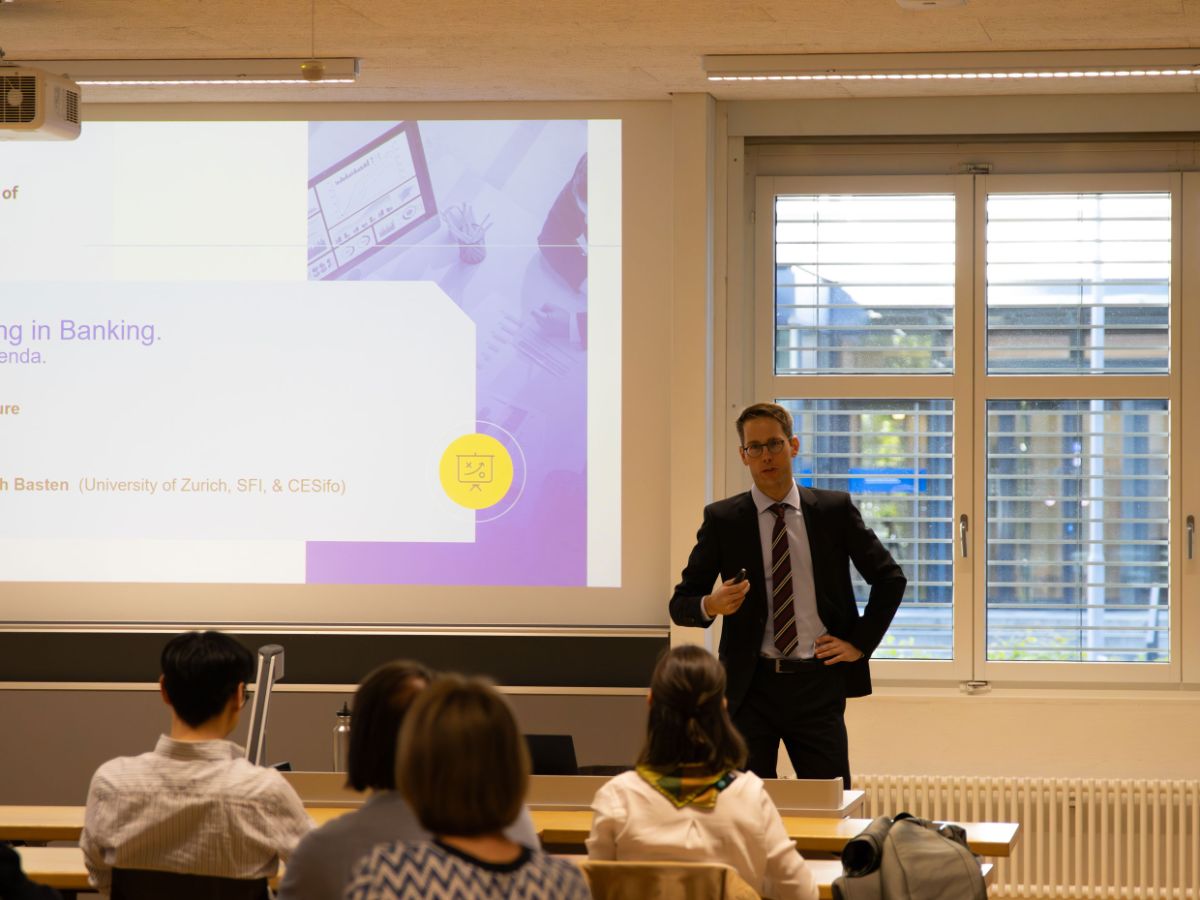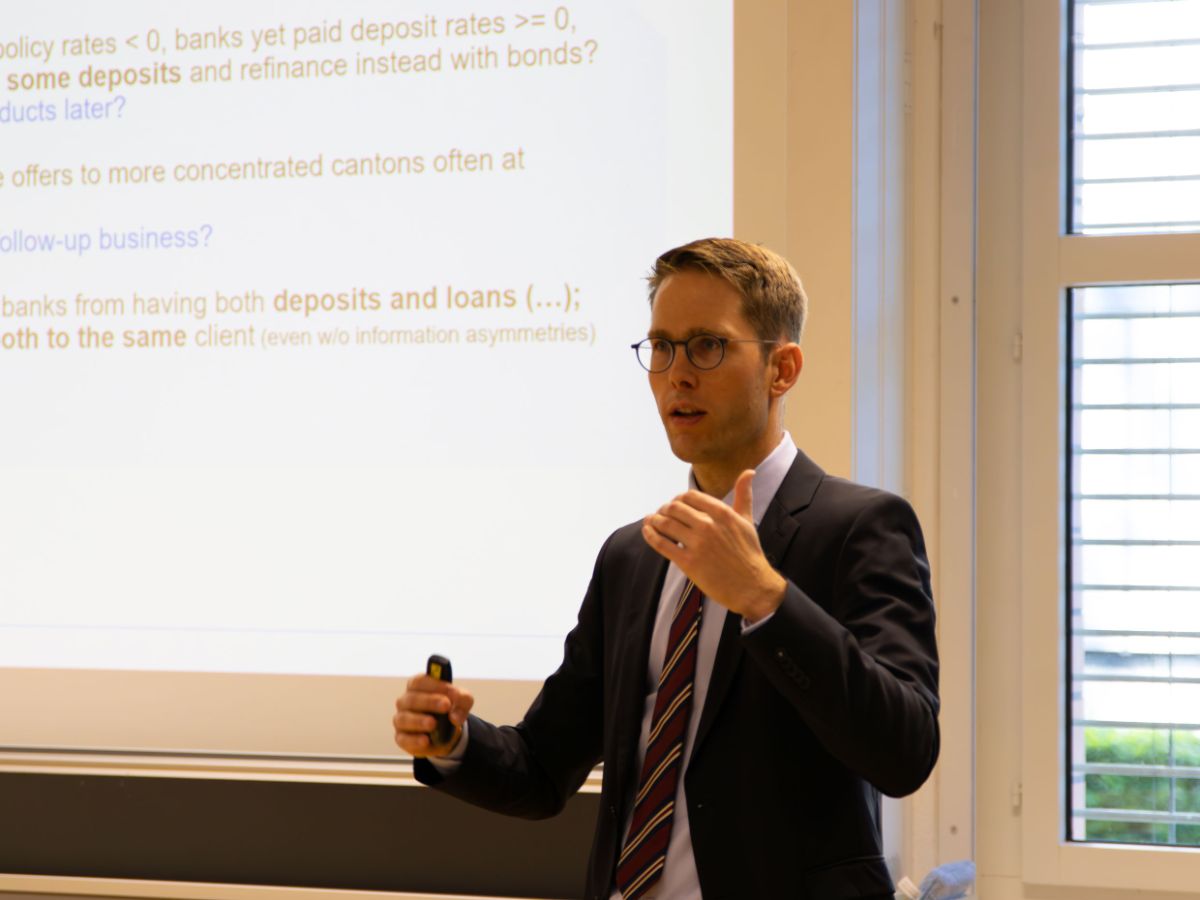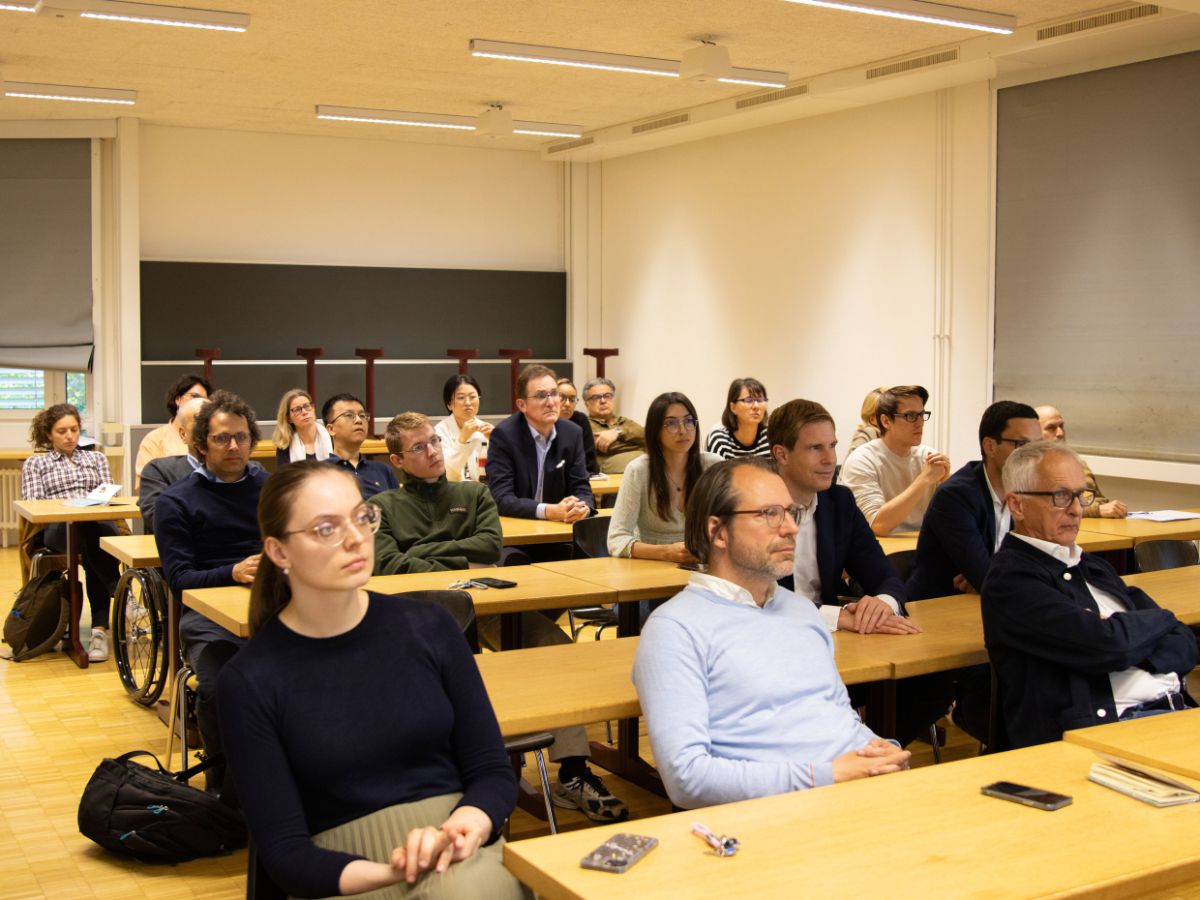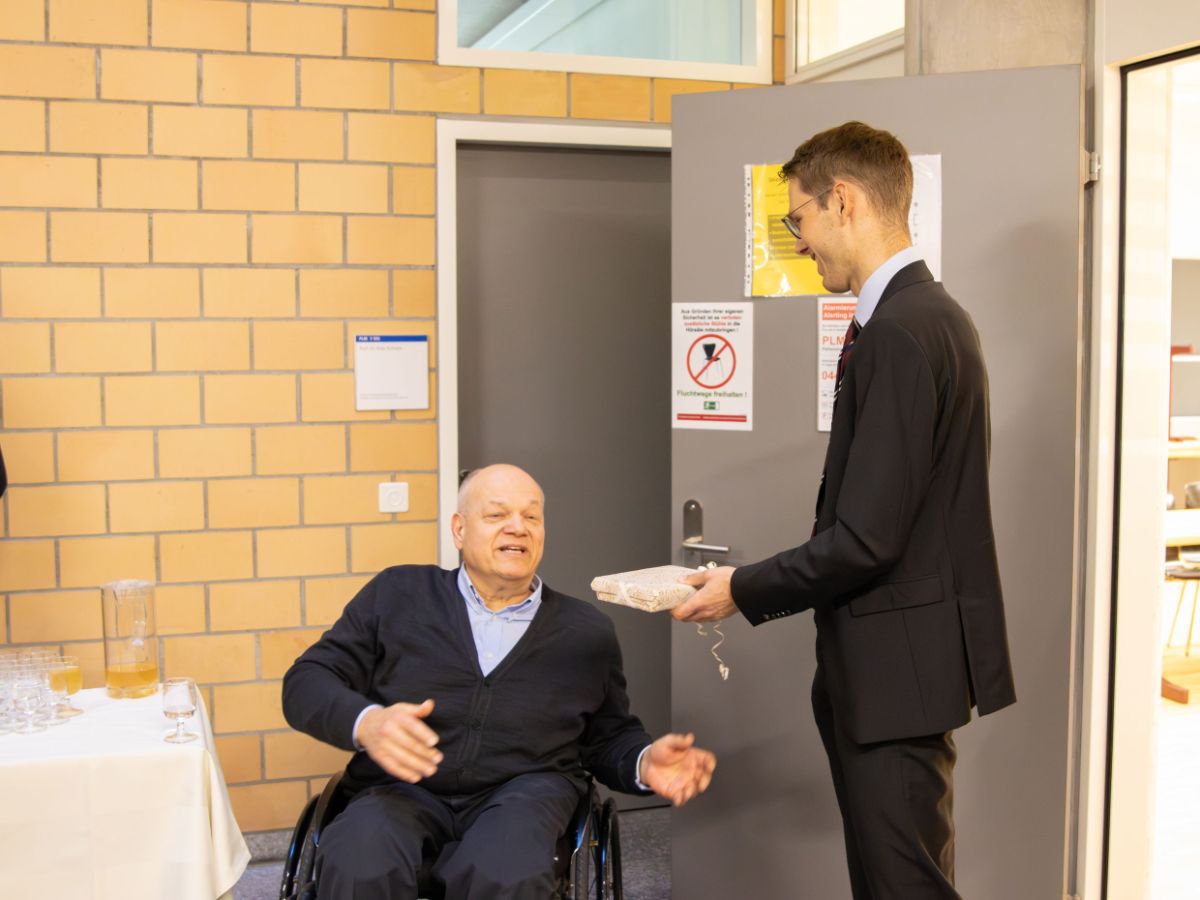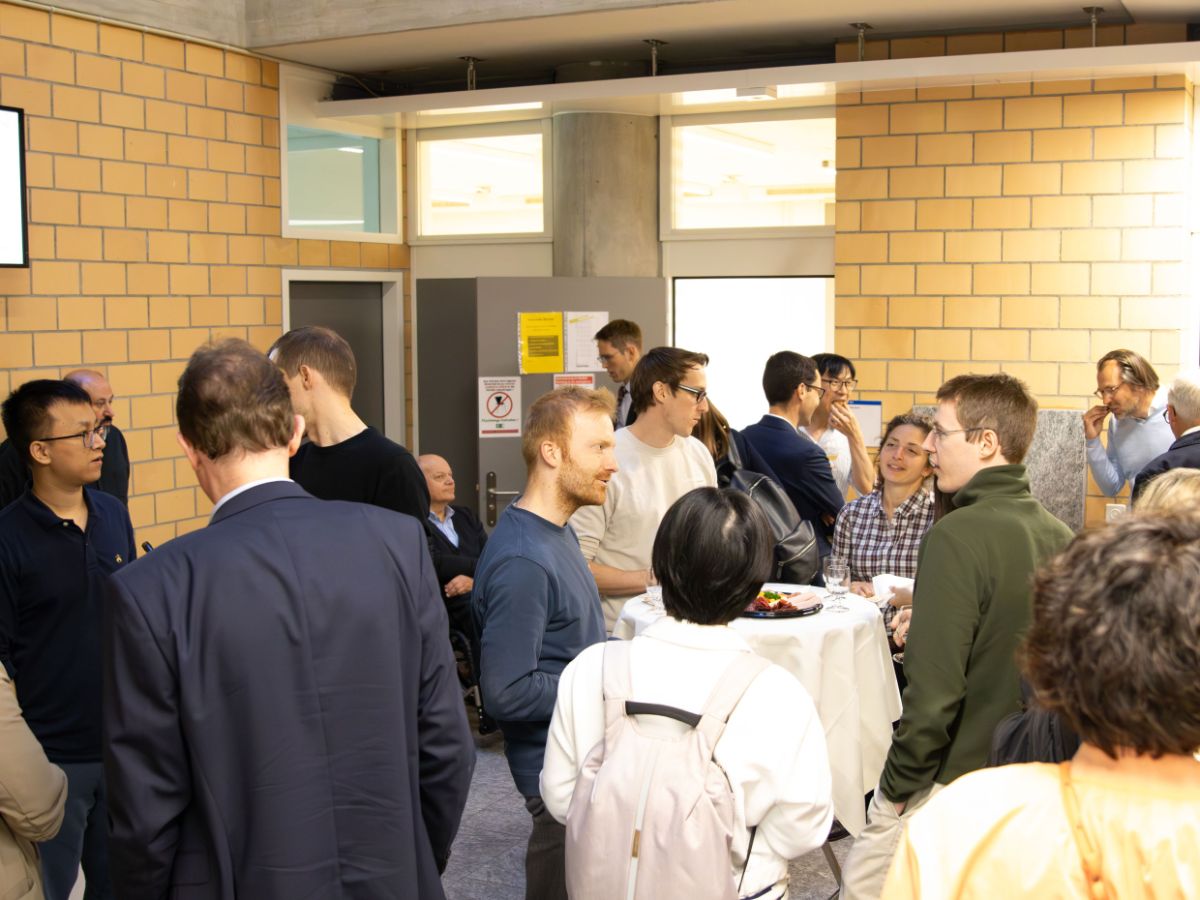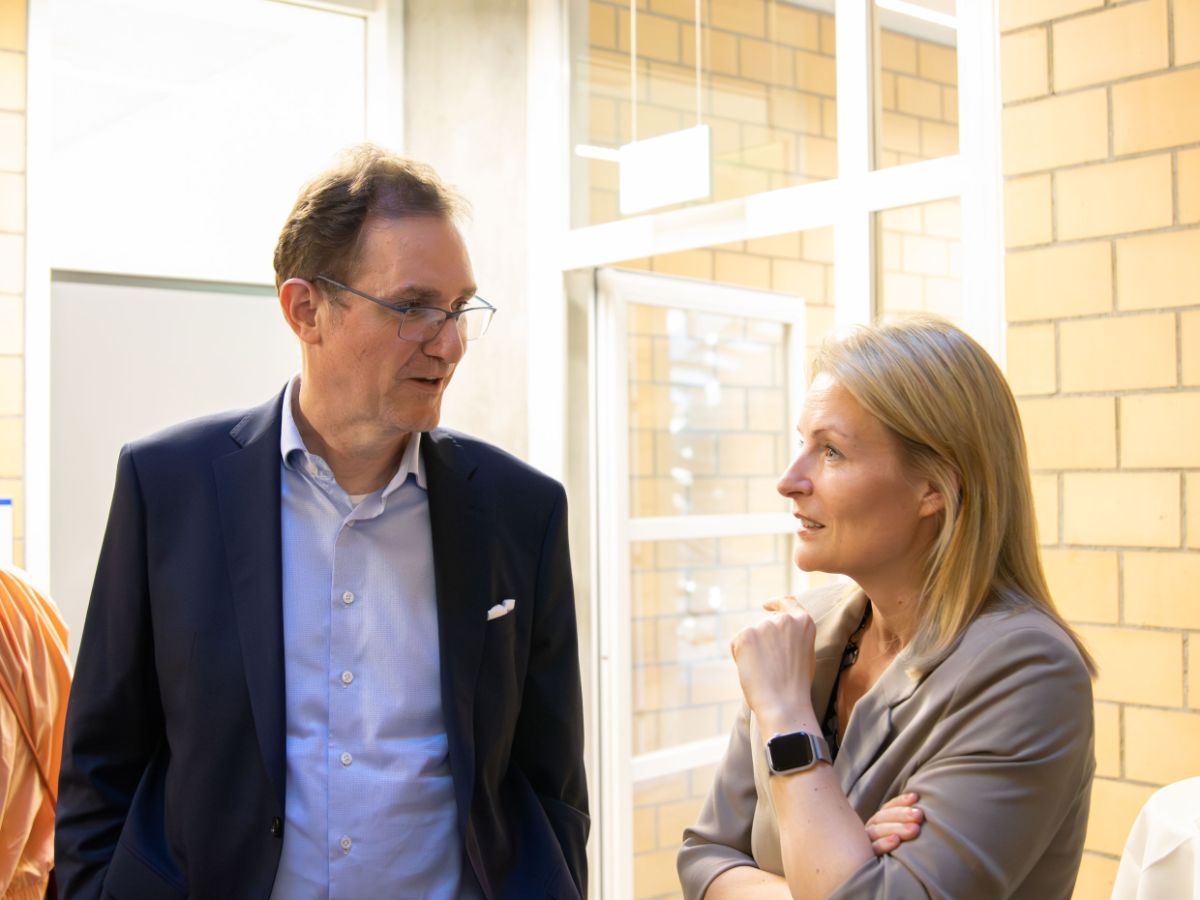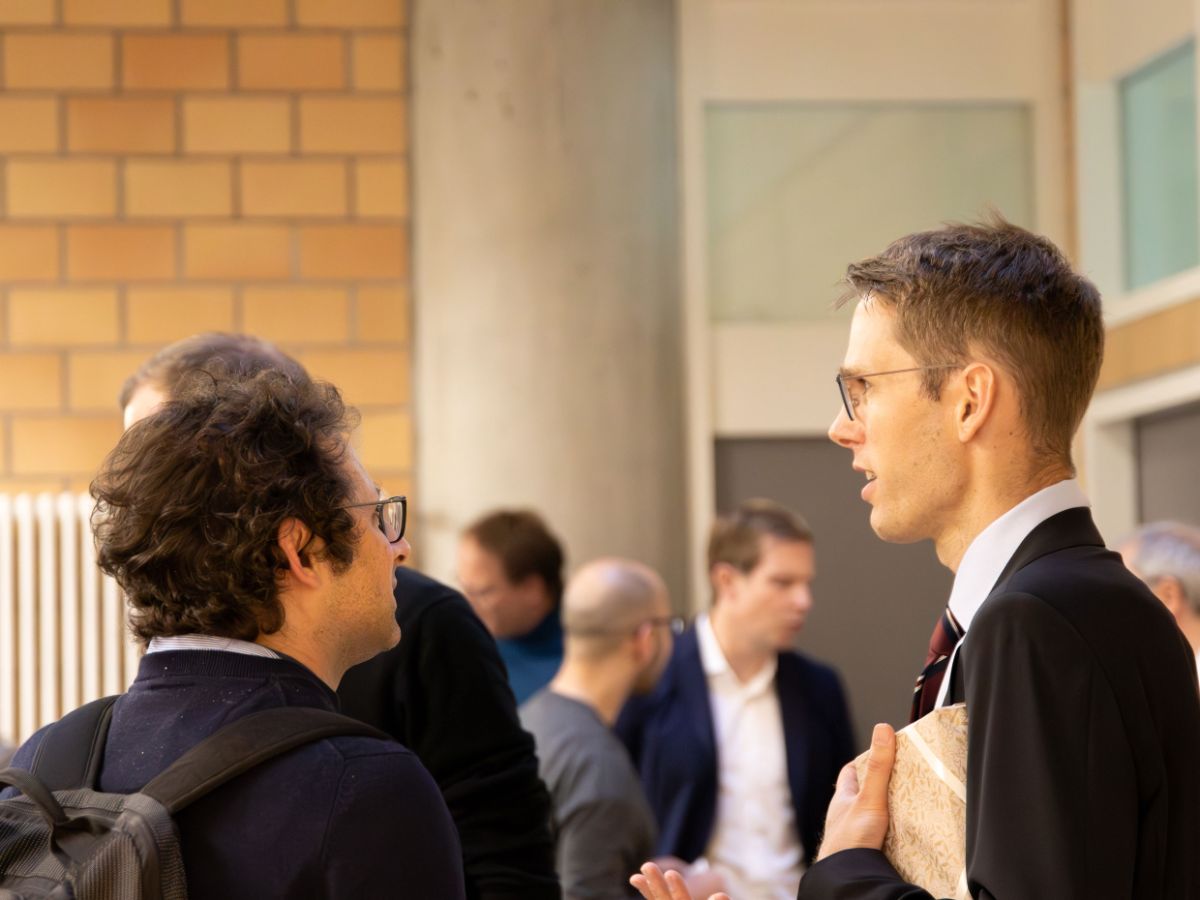Farewell lecture: Christoph Basten
"Cross-Selling in Banking"
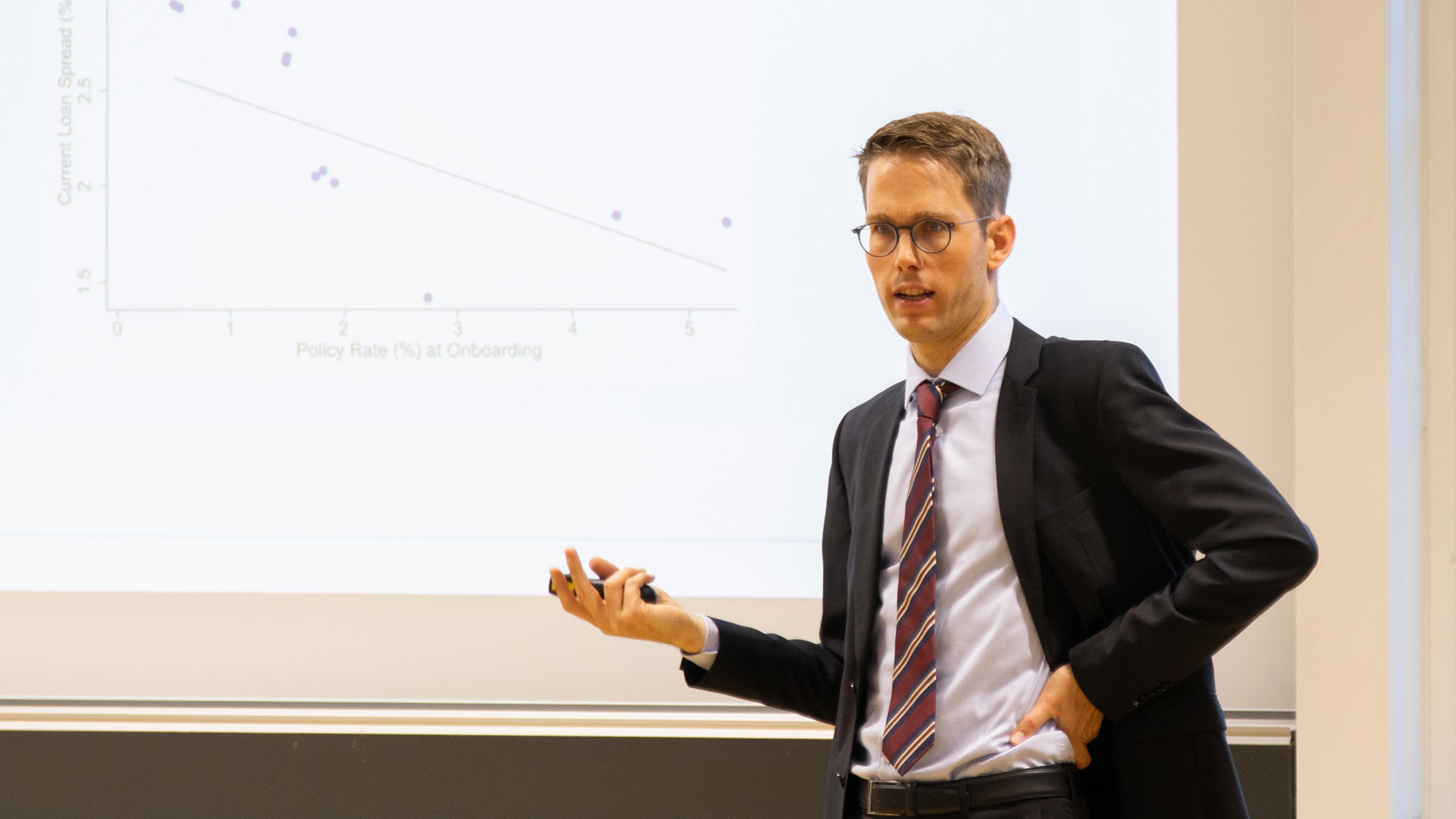
Christoph Basten is an Assistant Professor (fixed-term until summer 2024) in the Department of Finance at the University of Zurich (UZH), and also affiliated with the University Research Priority Program “Financial Market Regulation”, the Swiss Finance Institute (SFI), and CESifo. In September-December 2021, he was a Visiting Scholar at the NYU Stern School of Business.
Read an excerpt of the interview below or download the full interview including the farewell speech topic "Cross-Selling in Banking".
Q: Professor Basten, can you tell us how your journey into your main research field began and what inspired you to pursue an academic career?
A: When I completed my PhD in Economics in 2011, Europe was in midst of a Global Financial Crisis and many countries had to cut spending on schools, universities, or health care after having spent excessive amounts to bail out their banks.
This made it clear to me that a solid understanding of banking is essential not only for banks, but also for society as a whole. This is especially true for Switzerland, where banking significantly impacts employment, GDP, and national risk management.
After a brief postdoc, I spent close to 5 years working for the Swiss Financial Market Supervisory Authority (FINMA). I enjoyed that working experience a lot. Compared to many comparable authorities, FINMA is rather small and agile and therefore offers excellent opportunities to get to know details, but also to see the big picture. At the same time, it became clear to me that the data and analysis options available then did not allow for answering key policy questions as solidly as would have been desirable.
Therefore, in February 2018, I moved to the University of Zurich as Assistant Professor. The needs of the Swiss banks and authorities also inspired my subsequent research questions.
At the same time, I had to accept that work on banking in Switzerland is constrained by the granularity and availability of data for research, which limits the potential to publish in the “top 3” academic finance journals. I therefore decided to work with Norwegian data, some of whose results are transferable to the Swiss context.
As a teacher I have taught in the department’s MA and PhD programs but mostly in the BA program. I shared with students not only the basic textbook material, but also my experience in research and Swiss policymaking.
Q: How has the field of your specific academic discipline evolved over time, and what significant changes have you witnessed with regard to academia, students, industry, policymakers, society, and the planet?
A: Currently, my work primarily involves empirical analyses of banking, guided by both theory and practical needs. My research aims to inform banks, their clients (household, corporate), as well as policymakers in central banks and supervisory authorities.
In this way, academic research on banking can provide valuable insights to both fellow researchers and practitioners.
A limitation of much empirical research is that results often aren't cross-contextual; for example, mortgage markets show significant institutional differences between countries. Thus, it is beneficial to have researchers working on different set-ups and varied contexts.
Q: Could you please share some insights into papers and key projects you would like to highlight?
A: One project I like to mention is my work on the “Countercyclical Capital Buffer” (CCyB), temporarily higher bank capital requirements. These requirements are part of policymakers’ “macroprudential toolkit” which can be used to stimulate or slow down bank lending when the central bank policy rate is used already to ensure consumer price stability.
My analyses thereon were started to address FINMA’s specific policy question on whether to raise or lower these requirements in 2013-14 and were later also published in the Review of Finance.
Using granular data that I sourced from the Comparis web platform, I found effects that would not have been possible to see in the less granular data available to the authorities at the time.
A second project is my work on “Cross-Selling in Banking” available at the Review of Financial Studies.
It quantifies the importance of banks “cross-selling” their depositors other banking products like mortgages, credit cards or wealth management later.
This was triggered by my earlier research on negative interest rates in Switzerland: When I wondered why banks were so hesitant to set negative deposit rates, even if they did not need all those deposits to refinance their current lending, many bankers told me that they wanted to keep their clients to also sell them other products in the future.
While such considerations may seem obvious to practitioners and many households, most existing banking research pretends that the price and resulting volume on deposit accounts is set only to maximize deposit profits.
My paper shows that this is not the case and has thereby started a whole research agenda exploring how cross-selling considerations matter for bank and firm profits, household welfare, monetary policy transmission and financial stability.
Q: Is there any advice you would give to yourself (or others) – looking back to the start of your academic career?
A: First, while I still believe that research financed by the Swiss taxpayer should be sufficiently relevant for Switzerland, I would also have to caution the young that it may be harder to publish than work on countries that have better data or are larger or both. And hiring committees may look more at the number of publications than try to understand the research quality themselves.
Second, in the past I mostly preferred to work on projects where I was in the lead. With hindsight I did thereby possibly forego valuable opportunities to learn from more experienced peers.
Q: What did you like about our Department of Finance and which thoughts do you have about its future?
A: The department contains enormously talented and dedicated staff, both amongst the professoriate and amongst the shared services, and this is fantastic! It is also contributing to some of the most important debates of our time, including how to deal with global warming!
However, I am concerned that banking research may be increasingly overlooked. We should not forget that Switzerland is a vital financial center, evidenced by significant bank assets, tax revenues, and employment, with both risks and opportunities.
To have essentially only a single banking chair left is not enough to serve the needs of Zurich and Swiss taxpayers mostly financing this university. And I would be saying this also if I had not been working on banking research myself, just as I like to emphasize the importance of insurance research for many of the same reasons. But I trust that the department will take better account of this again in the future and wish it best of success with that.
Q: What are your own plans and aspirations for your next step? Which aspects are you looking forward to, which aspects will you be missing?
A: In the coming months, I will be leading a team at the European Central Bank (ECB) analyzing the transmission of monetary policy through Europe’s heterogeneous banking markets. I look forward to being in policy again and hopefully contributing my share to the economic well-being of some 350 Mio. Europeans.
I also look forward to the enormous leverage my team will have, and to the chances from drawing on the resources of a very professional institution like the ECB. At the same time, I hope to sufficiently continue my active research agenda, as I would regret to see it dying. But I will have to see how I can ultimately strike the right balance on this. And I will indeed be missing the quality of life in Switzerland, where my family will remain for the time being.
